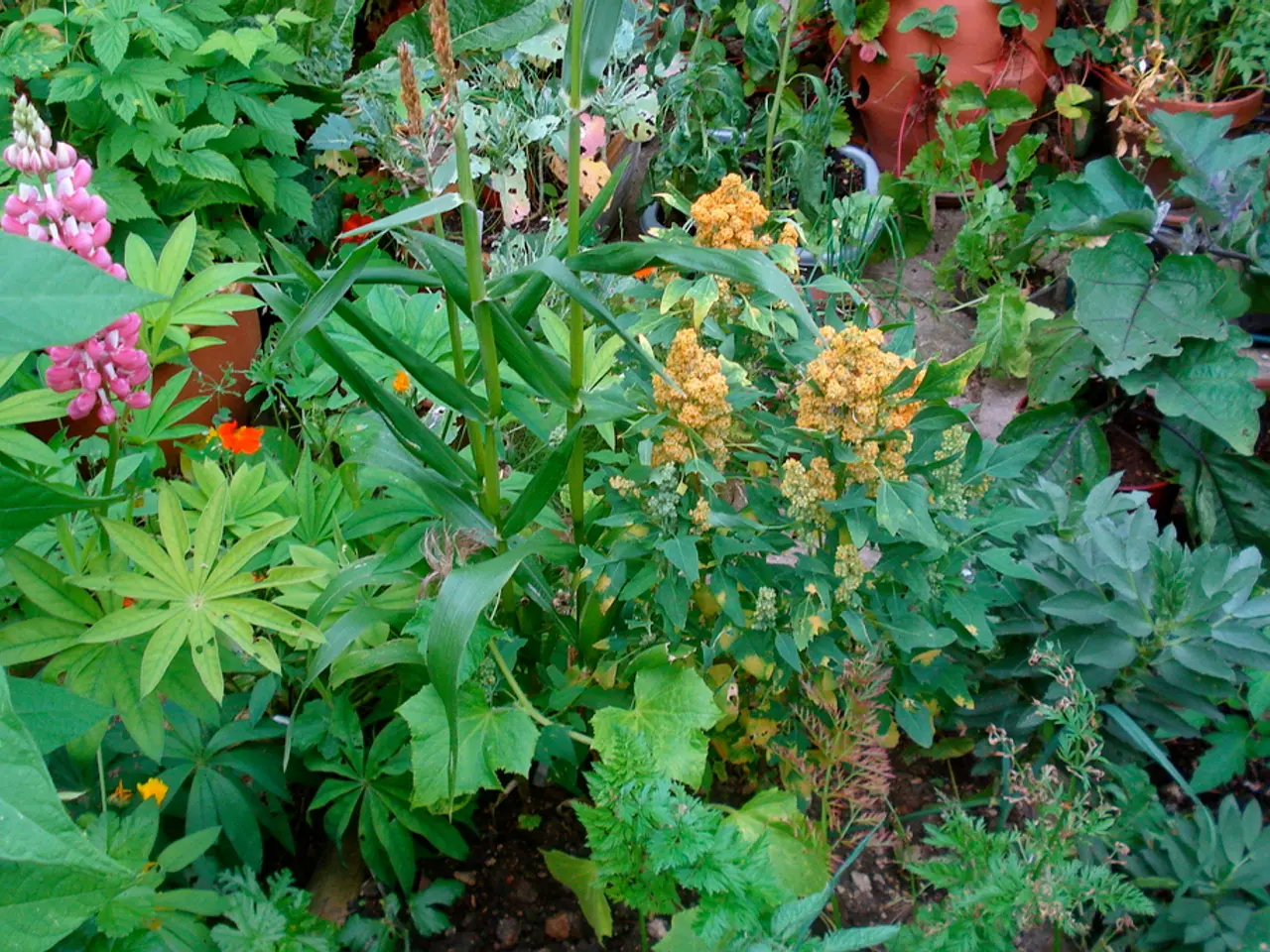Prefer gym avoidance? Discover a more convenient method for fitness and health maintenance, a shocking revelation from a General Practitioner suggests.
In a world where physical inactivity is increasingly linked to numerous health issues, including cardiovascular diseases, cancers, and Type 2 diabetes mellitus, a surprising solution is gaining traction: gardening. This seemingly simple pastime offers a wealth of benefits, making it an accessible and enjoyable exercise for people of all ages, particularly older adults.
**Physical Exercise Advantages**
Gardening tasks, such as digging, planting, watering, and weeding, engage both upper and lower body muscles, thereby improving muscular strength and cardiovascular endurance. Additionally, the movements involved in gardening support joint range of motion and flexibility, promoting better mobility without causing strain or overexertion.
Activities like kneeling, reaching, and navigating uneven garden terrain enhance body awareness, core muscle activation, proprioception, and coordination, which can reduce fall risk and improve overall stability. The low-impact nature of gardening makes it an ideal exercise for individuals with reduced levels of fitness or mobility, with adjustments such as raised beds, lightweight tools, ergonomically designed handles, smaller plots, or balcony gardening options available.
**Calorie Burning and Cardiovascular Health**
According to the Center for Disease Control in the USA, an hour of gardening can burn between 250 and 350 calories, comparable to gym workouts. Meeting recommended weekly cardiovascular exercise guidelines (150 minutes/week) becomes achievable through regular gardening sessions.
**Mental Health Benefits**
Beyond the physical benefits, gardening offers mental health advantages. A study suggests that gardening reduces acute stress, lowers cortisol levels, and improves mood, which indirectly supports heart health by mitigating chronic stress—a known risk factor for cardiovascular disease.
Being outdoors exposes individuals to fresh air and sunlight, which enhances vitamin D production and overall vitality, and contributes to psychological well-being. The self-paced and sustainable nature of gardening makes it an enjoyable way to maintain fitness and independence over time.
**A Comprehensive Exercise Solution**
In summary, gardening combines moderate-intensity physical activity with mental and emotional benefits, making it a comprehensive, accessible exercise that supports muscular strength, cardiovascular health, flexibility, balance, and stress reduction. These factors collectively contribute to its effectiveness in maintaining fitness and overall health across the lifespan.
The benefits of gardening extend beyond personal health. A study on community garden participants in Utah found that they were significantly less likely to be overweight, while another study on 150,000 gardeners across the USA showed better outcomes in terms of cardiovascular health status, lower odds of diabetes, better mental and physical health status, and greater fruit and veg intake.
Moreover, gardening can help prevent falls, as shown by the US Health and Retirement Study, with gardeners having a 30% reduction in falls. This is particularly crucial for an aging population, as falls cost the NHS more than £2 billion annually in the UK, with much more when including the costs for social care.
Richard Claxton, a GP, garden designer, and founder of the green-prescribing network Gardening4Health, emphasises the importance of gardening for health and well-being. A key study in the Netherlands in 2012 showed that gardeners over 60 years of age had better health outcomes in every single measure, including better physical and mental health, lower odds of diabetes, and a significantly lower risk of ten-year mortality.
With nearly 87% of the population having access to a garden or a green space of their own, it is crucial for planning decisions to incorporate access to gardens, allotments, and community growing spaces, particularly in inner cities and among Black, Asian, or minority ethnic city-dwellers, who currently make up the nearly 13% of the population without access to their own green space.
For those who, like the author, find traditional gym activities unappealing or were not athletically successful in school, gardening offers a Lycra-free environment to maintain physical fitness. In fact, 40% of doctors enjoy gardening, and 42% of UK residents garden as a hobby.
In conclusion, gardening is not just a pastime; it's a powerful tool for health and fitness. By engaging in this low-impact, accessible, and enjoyable exercise, individuals can improve their physical and mental well-being, reduce the risk of falls, and contribute to a healthier population.
- Gardening tasks, such as digging and planting, engage both upper and lower body muscles, thereby improving muscular strength and cardiovascular endurance, making it an ideal exercise for individuals with reduced levels of fitness or mobility.
- The movements involved in gardening support joint range of motion and flexibility, promoting better mobility without causing strain or overexertion, particularly for older adults.
- Garden activities like kneeling, reaching, and navigating uneven garden terrain enhance body awareness, core muscle activation, proprioception, and coordination, which can reduce fall risk and improve overall stability.
- According to the Center for Disease Control in the USA, an hour of gardening can burn between 250 and 350 calories, comparable to gym workouts, making it feasible to meet recommended weekly cardiovascular exercise guidelines.
- Beyond the physical benefits, gardening reduces acute stress, lowers cortisol levels, and improves mood, contributing to psychological well-being and better heart health by mitigating chronic stress, a known risk factor for cardiovascular disease.




